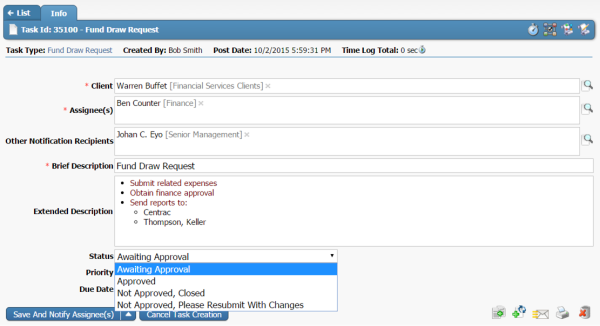Healthcare BPM And Creating Process Excellence For Patients


Healthcare is one of the most rapidly evolving industries with new regulations and developments happening every day. This dynamic nature of the industry contrasts sharply with the slow-changing organizations within it. Many healthcare organizations recognize the need for improvements to their systems and operations, but are often overwhelmed with where to begin or what to fix first.
Business Process Management is an approach that has been very successful for the proactive healthcare organizations that have begun to use it. Business Process Management, or BPM, focuses on analyzing and improving workflows to increase efficiency within an organization. BPM is already prevalent in many different industries and has shown to be very effective at increasing efficiencies and helping organizations meet their business goals. Due to the nature of the healthcare industry, organizations in it stand to benefit tremendously from adoption of BPM principles and applications.
One key benefit to using BPM in healthcare organizations is the flexibility and ease at which the BPM solution can adapt to changing regulatory conditions. Many legacy software solutions currently in place within healthcare organizations are difficult or impossible to change. Instead, organizations are forced to add additional “solutions” or workarounds to their current systems, which can be time-consuming, complicated, and ultimately lead to mistakes.
A mistake or oversight in this industry can literally be a matter of life and death, so anything that decreases that possibility should be a top priority. Legacy systems can be integrated into a BPM solution so that all necessary information is stored together. As patients go through various processes within the organization, their records will continue to be added to and tracked, ensuring that information won’t be overlooked or missing.

Another benefit of BPM for healthcare is the increased patient-centricity that it makes possible. Healthcare providers and organizations using BPM solutions can focus more on the individual patients due to the increased administrative efficiency. Healthcare providers using BPM are better able to optimize their time and resources toward treating patients. BPM solutions can also help to optimize the management and treatment of patient cases.
Through modeling of patient treatment workflows, healthcare professionals can more easily identify trends and use that information to determine a patient’s course of treatment. This combination of a more personalized approach along with access to more information is extremely beneficial for both the patient and their provider.
An innovative approach to deploying BPM solutions is Lean BPM, which harnesses the principles of Lean to cut the time and cost associated with adopting a BPMS (Business Process Management Solution). Traditional BPM deployments, typified by IBM Blueworks and Oracle BPM, have a reputation for being rolled out very slowly while soaking up large budgets, time and resources.
Lean BPM tools, such as JobTraQ, provide a Lean Toolkit which allows for very fast deployment of a pragmatic set of BPM tools, but omits functionality such as simulation. This simlpicity and speed allows for operational staff with no technical or development background to control workflows and patient processes themselves, without the need to rely on IT staff who themselves are frequently overburdened.
For the organization itself, BPM offers additional benefits such as increased customer satisfaction and cost reduction. Healthcare processes have many different moving parts and pieces. Some of these are routine tasks, such as filing insurance claims, while others, such as medical diagnoses and treatments, can be much more complicated. The flexibility offered by a BPM solution facilitates the interactions between these processes as part of fully integrated workflows.
The streamlined workflow makes the healthcare experience easier and more manageable for the patient. It also results in increased efficiency, and thus decreased expenses, for the healthcare organization. As the healthcare industry continues to change and grow, more organizations will benefit from adopting BPM solutions in the future.
Amira Chugunova is a tech and business writer with an interest in healthcare technology, and in particular the application of Lean, Six Sigma, and BPM in the healthcare sector.
